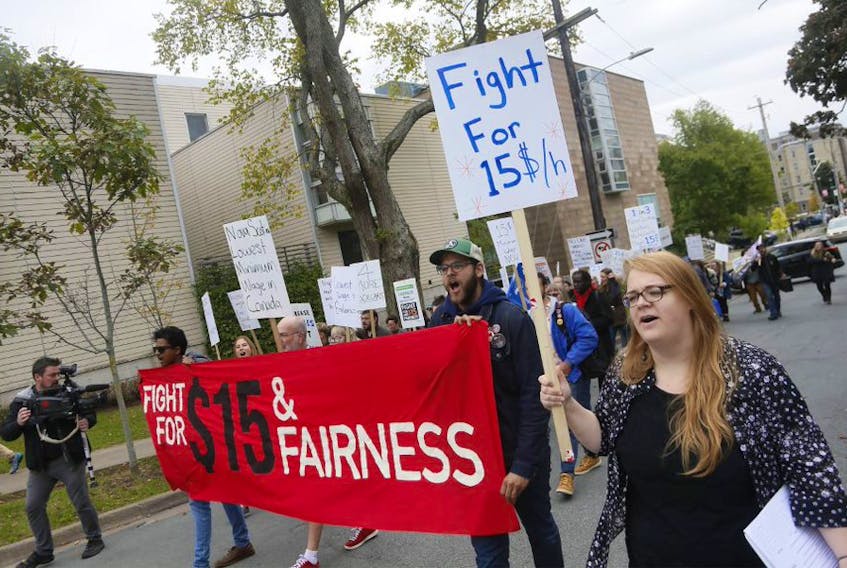While the State of Emergency in St. John’s is behind us, the economic insecurity of minimum-wage workers in the province remains. As the public awaits the results of the minimum-wage review, employers’ groups appear to be hoping the provincial government has forgotten the robust discussion on the precarious nature of minimum wage work sparked by the record-setting blizzard.
In their submission to the province’s minimum wage review, the St. John’s Board of Trade stated that the minimum wage is a “highly political issue,” urging the provincial government to de-politicize the minimum wage discussion by continuing on with the status quo.
The reality is that setting the minimum wage is a matter of public policy and is inherently a political decision; it’s a reflection of the values and priorities of the current government and the people they serve.
Efforts to suggest otherwise undermine all workers, not just those earning the minimum wage.
It’s easy to think that applying the same rate-of-pay model from white-collar jobs is the appropriate way to determine the rate for minimum-wage jobs.
However, minimum-wage employment opportunities serve a different and vital purpose. They are accessible to people of varying ages, education and skill levels and while not designed to be intentionally low-barrier, they provide essential services and act as a kind of baseline employment opportunity.
Despite the important services delivered by these workers, minimum-wage jobs do not compensate adequately. The reality is that minimum-wage workers serve the profit-driven interests of big business, often trapping people in a cycle of living paycheque to paycheque. Employers’ groups suggest increasing the minimum wage will hurt local, small businesses but according to Statistics Canada, the highest growth in minimum wage workers’ share of the labour force was among big businesses.
Canada’s official poverty line for individuals ranges from $16,436 to $20,389. In 2020 in Newfoundland and Labrador, a minimum wage, full-time annual income after taxes falls within this range.
It’s also worth noting that 58 per cent of minimum wage earners in Newfoundland and Labrador are women — a statistic employers’ groups deem “too political” to be considered in the provincial review.
But when public policy decisions keep our minimum wage earners in poverty, encouraging the wage gap to persist, it is impossible and, frankly, irresponsible to take politics out of the discussion.
We’ve seen recommendations to create stipulations, tiers, and other muddying constraints on how and whose wages are raised. This is just another way to increase class division and punish the working poor.
Nearly half of minimum-wage workers in this province are full-time employees — not part-time students or youth earning pocket money, as portrayed by the Board of Trade. It is not up to any of us to privilege one kind of circumstance over another, and then to determine if someone “deserves” more money.
They are working and they have earned it.
Minimum wage means just that — this is the minimum amount we as a province are willing to pay people for their labour. To tell workers that stock our grocery store aisles, serve our lunches and ring through our purchases at local shops that their work is not valuable enough to earn more than $11.40 an hour is shameful.
Our province is facing a set of very serious fiscal and economic challenges. If we truly want to support communities, stem outmigration, reduce poverty and stimulate the economy, the very least we can do is provide a robust $15 minimum wage for working people in this province.
It’s not just good politics — it’s the right thing to do.
Jessica McCormick, Mica McCurdy and Bridget Clarke,
St. John’s








